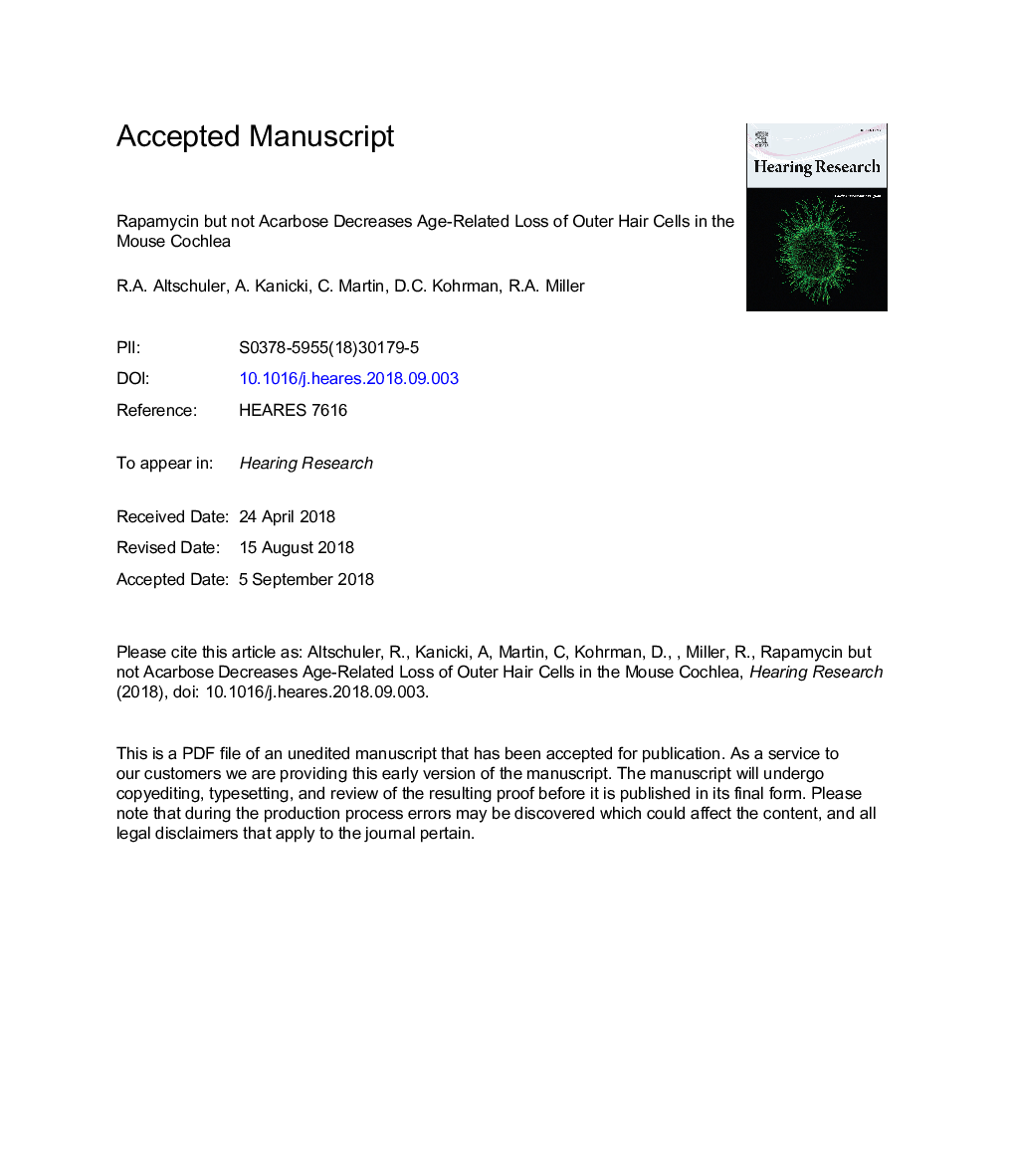| کد مقاله | کد نشریه | سال انتشار | مقاله انگلیسی | نسخه تمام متن |
|---|---|---|---|---|
| 10223206 | 1701013 | 2018 | 21 صفحه PDF | دانلود رایگان |
عنوان انگلیسی مقاله ISI
Rapamycin but not acarbose decreases age-related loss of outer hair cells in the mouse Cochlea
ترجمه فارسی عنوان
راپامایسین، اما اکاربوس، باعث کاهش وابستگی به سن از دست دادن سلول های موی بیرونی در ماکولا می شود
دانلود مقاله + سفارش ترجمه
دانلود مقاله ISI انگلیسی
رایگان برای ایرانیان
کلمات کلیدی
موضوعات مرتبط
علوم زیستی و بیوفناوری
علم عصب شناسی
سیستم های حسی
چکیده انگلیسی
Adding rapamycin or acarbose to diet at 9-10 months of age has been shown to significantly increase life span in both male and female UM-HET3 mice. The current study examined cochleae of male and female UM-HET3 mice at 22 months of age to determine if either treatment also influenced age-related loss of cochlear hair cells. A large loss of cochlear outer hair cells was observed at 22 months of age in untreated mice in both apical and basal halves of the cochlear spiral. Addition of acarbose to diet had no significant effect on the amount of outer hair cell loss at 22 months of age or in its pattern, with large loss in both apical and basal halves. The addition of rapamycin to diet, however, significantly reduced outer hair cell loss in the basal half of the cochlea at 22 months of age when compared to untreated mice. There was no significant difference between male and female mice in any of the conditions. Age-related outer hair cell loss in the apical cochlea precedes outer hair cell loss in the base in many mouse strains. The results of the present study suggest that rapamycin but not acarbose treatment can delay age-related loss of outer hair cells at doses at which each drug increases life span.
ناشر
Database: Elsevier - ScienceDirect (ساینس دایرکت)
Journal: Hearing Research - Volume 370, December 2018, Pages 11-15
Journal: Hearing Research - Volume 370, December 2018, Pages 11-15
نویسندگان
R.A. Altschuler, A. Kanicki, C. Martin, D.C. Kohrman, R.A. Miller,
